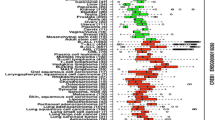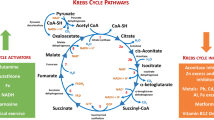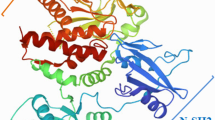Abstract
Casein kinase II (CK2) is an enzyme with pleiotropic kinase activity that catalyzes the phosphorylation of lots of substrates, including STAT3, p53, JAK2, PTEN, RELA, and AKT, leading to the regulation of diabetes, cardiovascular diseases, angiogenesis, and tumor progression. CK2 is observed to have high expression in multiple types of cancer, which is associated with poor prognosis. CK2 holds significant importance in the intricate network of pathways involved in promoting cell proliferation, invasion, migration, apoptosis, and tumor growth by multiple pathways such as JAK2/STAT3, PI3K/AKT, ATF4/p21, and HSP90/Cdc37. In addition to the regulation of cancer progression, increasing evidence suggests that CK2 could regulate tumor immune responses by affecting immune cell activity in the tumor microenvironment resulting in the promotion of tumor immune escape. Therefore, inhibition of CK2 is initially proposed as a pivotal candidate for cancer treatment. In this review, we discussed the role of CK2 in cancer progression and tumor therapy.





Similar content being viewed by others
Data availability
Not applicable.
References
Pinna L. A historical view of protein kinase CK2. Cell Mol Biol Res. 1994;40:383–90.
Litchfield DW. Protein kinase CK2: structure, regulation and role in cellular decisions of life and death. Biochem J. 2003;369:1–15.
Montenarh M, Götz C. Protein kinase CK2 and ion channels. Biomed Rep. 2020;13:1.
Faust RA, Niehans G, Gapany M, Hoistad D, Knapp D, Cherwitz D, et al. Subcellular immunolocalization of protein kinase CK2 in normal and carcinoma cells. Int J Biochem Cell Biol. 1999;31:941–9.
Yu H, Yang X, Tang J, Si S, Zhou Z, Lu J, et al. ALKBH5 inhibited cell proliferation and sensitized bladder cancer cells to cisplatin by m6A-CK2α-mediated glycolysis. Molr Ther Nucleic Acids. 2021;23:27–41.
Kwon J, Zhang J, Mok B, Han C. CK2-Mediated phosphorylation upregulates the stability of USP13 and promotes ovarian cancer cell proliferation. Cancers. 2022;15:200.
Siddiqui YH, Kershaw RM, Humphreys EH, Assis Junior E, Chaudhri S, Jayaraman P-S, et al. CK2 abrogates the inhibitory effects of PRH/HHEX on prostate cancer cell migration and invasion and acts through PRH to control cell proliferation. Oncogenesis. 2017;6:e293.
Im D-K, Cheong H, Lee JS, Oh M-K, Yang KM. Protein kinase CK2-dependent aerobic glycolysis-induced lactate dehydrogenase A enhances the migration and invasion of cancer cells. Sci Rep. 2019;9:1–11.
Niechi I, Silva E, Cabello P, Huerta H, Carrasco V, Villar P, et al. Colon cancer cell invasion is promoted by protein kinase CK2 through increase of endothelin-converting enzyme-1c protein stability. Oncotarget. 2015;6:42749.
Wu D, Sui C, Meng F, Tian X, Fu L, Li Y, et al. Stable knockdown of protein kinase CK2-alpha (CK2α) inhibits migration and invasion and induces inactivation of hedgehog signaling pathway in hepatocellular carcinoma Hep G2 cells. Acta Histochem. 2014;116:1501–8.
Qaiser F, Trembley JH, Kren BT, Wu JJ, Naveed AK, Ahmed K. Protein kinase CK2 inhibition induces cell death via early impact on mitochondrial function. J Cell Biochem. 2014;115:2103–15.
Zhang L, Ruan X, Gu M, Mueck A. E2+ norethisterone promotes the PI3K–AKT pathway via PGRMC1 to induce breast cancer cell proliferation. Climacteric. 2022;25:467–75.
Liu T, Zhang L, Joo D, Sun S-C. NF-κB signaling in inflammation. Signal Transduct Target Ther. 2017;2:1–9.
Zhao N, Wang C, Guo P, Hou J, Yang H, Lan T, et al. CCDC106 promotes the proliferation and invasion of ovarian cancer cells by suppressing p21 transcription through a p53-independent pathway. Bioengineered. 2022;13:10957–73.
Manni S, Carrino M, Piazza F. Role of protein kinases CK1α and CK2 in multiple myeloma: regulation of pivotal survival and stress-managing pathways. J Hematol Oncol. 2017;10:1–10.
Sun J, Zhang X, Sun Y. C1orf109 promotes malignant phenotype of liver cancer via wnt signaling pathway in a CK2-dependent manner. J Mol Histol. 2023;54:135–45.
Quotti Tubi L, Gurrieri C, Brancalion A, Bonaldi L, Bertorelle R, Manni S, et al. Inhibition of protein kinase CK2 with the clinical-grade small ATP-competitive compound CX-4945 or by RNA interference unveils its role in acute myeloid leukemia cell survival, p53-dependent apoptosis and daunorubicin-induced cytotoxicity. J Hematol Oncol. 2013;6:1–15.
Ren X, Feng C, Wang Y, Chen P, Wang S, Wang J, et al. SLC39A10 promotes malignant phenotypes of gastric cancer cells by activating the CK2-mediated MAPK/ERK and PI3K/AKT pathways. Exp Mol Med. 2023. https://doi.org/10.1038/s12276-023-01062-5.
Zou J, Luo H, Zeng Q, Dong Z, Wu D, Liu L. Protein kinase CK2α is overexpressed in colorectal cancer and modulates cell proliferation and invasion via regulating EMT-related genes. J Transl Med. 2011;9:1–11.
Gandin V, Masvidal L, Cargnello M, Gyenis L, McLaughlan S, Cai Y, et al. mTORC1 and CK2 coordinate ternary and eIF4F complex assembly. Nat Commun. 2016;7:11127.
Kim S, Ham S, Yang K, Kim K. Protein kinase CK2 activation is required for transforming growth factor β-induced epithelial–mesenchymal transition. Mol Oncol. 2018;12:1811–26.
Turowec JP, Duncan JS, Gloor GB, Litchfield DW. Regulation of caspase pathways by protein kinase CK2: identification of proteins with overlapping CK2 and caspase consensus motifs. Mol Cell Biochem. 2011;356:159–67.
Mortezaee K. Myeloid-derived suppressor cells in cancer immunotherapy-clinical perspectives. Life Sci. 2021;277: 119627.
Trembley J, Wang G, Unger G, Slaton J, Ahmed K. Protein kinase CK2 in health and disease: CK2: a key player in cancer biology. Cell Mol Life Sci. 2009;66:1858–67.
Nipun V, Amin K. Recent advances in protein kinase CK2, a potential therapeutic target in cancer. Russ J Bioorg Chem. 2022;48:919–31.
Viola A, Munari F, Sánchez-Rodríguez R, Scolaro T, Castegna A. The metabolic signature of macrophage responses. Front Immunol. 2019;10:1462.
Ruzzene M, Bertacchini J, Toker A, Marmiroli S. Cross-talk between the CK2 and AKT signaling pathways in cancer. Adv Biol Regul. 2017;64:1–8.
Hwang S-Y, Chae J-I, Kwak A-W, Lee M-H, Shim J-H. Alternative options for skin cancer therapy via regulation of AKT and related signaling pathways. Int J Mol Sci. 2020;21:6869.
Duan Y, Haybaeck J, Yang Z. Therapeutic potential of PI3K/AKT/mTOR pathway in gastrointestinal stromal tumors: rationale and progress. Cancers. 2020;12:2972.
Chen J-F, Wu P, Xia R, Yang J, Huo X-Y, Gu D-Y, et al. STAT3-induced lncRNA HAGLROS overexpression contributes to the malignant progression of gastric cancer cells via mTOR signal-mediated inhibition of autophagy. Mol Cancer. 2018;17:1–16.
Trembley JH, Kren BT, Abedin MJ, Shaughnessy DP, Li Y, Dehm SM, et al. CK2 pro-survival role in prostate cancer is mediated via maintenance and promotion of androgen receptor and NFκB p65 expression. Pharmaceuticals. 2019;12:89.
Romieu-Mourez R, Landesman-Bollag E, Seldin DC, Sonenshein GE. Protein kinase CK2 promotes aberrant activation of nuclear factor-κB, transformed phenotype, and survival of breast cancer cells. Can Res. 2002;62:6770–8.
Borgo C, D’Amore C, Sarno S, Salvi M, Ruzzene M. Protein kinase CK2: A potential therapeutic target for diverse human diseases. Signal Transduct Target Ther. 2021;6:183.
Aparicio-Siegmund S, Sommer J, Monhasery N, Schwanbeck R, Keil E, Finkenstädt D, et al. Inhibition of protein kinase II (CK2) prevents induced signal transducer and activator of transcription (STAT) 1/3 and constitutive STAT3 activation. Oncotarget. 2014;5:2131.
Lecarpentier Y, Schussler O, Hébert J-L, Vallée A. Multiple targets of the canonical WNT/β-catenin signaling in cancers. Front Oncol. 2019;9:1248.
Firnau M-B, Brieger A. CK2 and the hallmarks of cancer. Biomedicines. 2022;10:1987.
Zhang S, Yang Y-L, Wang Y, You B, Dai Y, Chan G, et al. CK2α, over-expressed in human malignant pleural mesothelioma, regulates the Hedgehog signaling pathway in mesothelioma cells. J Exp Clin Cancer Res. 2014;33:1–12.
Lauffenburger DA, Horwitz AF. Cell migration: a physically integrated molecular process. Cell. 1996;84:359–69.
Mrozik KM, Blaschuk OW, Cheong CM, Zannettino ACW, Vandyke K. N-cadherin in cancer metastasis, its emerging role in haematological malignancies and potential as a therapeutic target in cancer. BMC Cancer. 2018;18:1–16.
Miyoshi A, Kitajima Y, Sumi K, Sato K, Hagiwara A, Koga Y, et al. Snail and SIP1 increase cancer invasion by upregulating MMP family in hepatocellular carcinoma cells. Br J Cancer. 2004;90:1265–73.
Torres J, Pulido R. The tumor suppressor PTEN is phosphorylated by the protein kinase CK2 at its C terminus: implications for PTEN stability to proteasome-mediated degradation. J Biol Chem. 2001;276:993–8.
Vazquez F, Ramaswamy S, Nakamura N, Sellers WR. Phosphorylation of the PTEN tail regulates protein stability and function. Mol Cell Biol. 2000;20:5010–8.
Di Maira G, Salvi M, Arrigoni G, Marin O, Sarno S, Brustolon F, et al. Protein kinase CK2 phosphorylates and upregulates Akt/PKB. Cell Death Differ. 2005;12:668–77.
Konicek BW, Dumstorf CA, Graff JR. Targeting the eIF4F translation initiation complex for cancer therapy. Cell Cycle. 2008;7:2466–71.
Neuzillet C, Tijeras-Raballand A, Cohen R, Cros J, Faivre S, Raymond E, et al. Targeting the TGFβ pathway for cancer therapy. Pharmacol Ther. 2015;147:22–31.
Duncan JS, Turowec JP, Vilk G, Li SS, Gloor GB, Litchfield DW. Regulation of cell proliferation and survival: convergence of protein kinases and caspases. Biochimica et Biophysica Acta. 2010;1804:505–10.
Degli Esposti M, Ferry G, Masdehors P, Boutin JA, Hickman JA, Dive C. Post-translational modification of Bid has differential effects on its susceptibility to cleavage by caspase 8 or caspase 3. J Biol Chem. 2003;278:15749–57.
Lucero M, Suarez AE, Chambers JW. Phosphoregulation on mitochondria: integration of cell and organelle responses. CNS Neurosci Ther. 2019;25:837–58.
Ruzzene M, Penzo D, Pinna LA. Protein kinase CK2 inhibitor 4, 5, 6, 7-tetrabromobenzotriazole (TBB) induces apoptosis and caspase-dependent degradation of haematopoietic lineage cell-specific protein 1 (HS1) in Jurkat cells. Biochem J. 2002;364:41–7.
Yamane K, Kinsella TJ. Casein kinase 2 regulates both apoptosis and the cell cycle following DNA damage induced by 6-thioguanine. Clin Cancer Res. 2005;11:2355–63.
Ranganathan P, Weaver KL, Capobianco AJ. Notch signalling in solid tumours: a little bit of everything but not all the time. Nat Rev Cancer. 2011;11:338–51.
Hashimoto A, Gao C, Mastio J, Kossenkov A, Abrams SI, Purandare AV, et al. Inhibition of casein kinase 2 disrupts differentiation of myeloid cells in cancer and enhances the efficacy of immunotherapy in MiceCK2 INHIBITOR and MDSC. Can Res. 2018;78:5644–55.
Cheng P, Kumar V, Liu H, Youn J-I, Fishman M, Sherman S, et al. Effects of notch signaling on regulation of myeloid cell differentiation in cancernotch and myeloid cells in cancer. Can Res. 2014;74:141–52.
Reverendo M, Argüello RJ, Polte C, Valečka J, Camosseto V, Auphan-Anezin N, et al. Polymerase III transcription is necessary for T cell priming by dendritic cells. Proc Natl Acad Sci. 2019;116:22721–9.
Mayoux M, Roller A, Pulko V, Sammicheli S, Chen S, Sum E, et al. Dendritic cells dictate responses to PD-L1 blockade cancer immunotherapy. Sci Transl Med. 2020;12:e7431.
Zhao X, Wei Y, Chu Y-Y, Li Y, Hsu J-M, Jiang Z, et al. Phosphorylation and stabilization of PD-L1 by CK2 suppresses dendritic cell function. Can Res. 2022;82:2185–95.
Ljunggren H-G, Malmberg K-J. Prospects for the use of NK cells in immunotherapy of human cancer. Nat Rev Immunol. 2007;7:329–39.
Kim H, Kim K, Lee K, Kim S, Kim J. Inhibition of casein kinase 2 enhances the death ligand-and natural kiler cell-induced hepatocellular carcinoma cell death. Clin Exp Immunol. 2008;152:336–44.
Nelson N, Szekeres K, Iclozan C, Rivera IO, McGill A, Johnson G, et al. Apigenin: selective CK2 inhibitor increases Ikaros expression and improves T cell homeostasis and function in murine pancreatic cancer. PLoS ONE. 2017;12: e0170197.
Popescu M, Gurel Z, Ronni T, Song C, Hung KY, Payne KJ, et al. Ikaros stability and pericentromeric localization are regulated by protein phosphatase 1. J Biol Chem. 2009;284:13869–80.
Yang W, Wei H, Benavides GA, Turbitt WJ, Buckley JA, Ouyang X, et al. Protein kinase CK2 controls CD8+ T cell effector and memory function during infection. J Immunol. 2022;209:896–906.
Wei H, Yang W, Hong H, Yan Z, Qin H, Benveniste EN. Protein kinase CK2 regulates B cell development and differentiation. J Immunol. 2021;207:799–808.
Piazza F, Manni S, Ruzzene M, Pinna L, Gurrieri C, Semenzato G. Protein kinase CK2 in hematologic malignancies: reliance on a pivotal cell survival regulator by oncogenic signaling pathways. Leukemia. 2012;26:1174–9.
Piazza FA, Ruzzene M, Gurrieri C, Montini B, Bonanni L, Chioetto G, et al. Multiple myeloma cell survival relies on high activity of protein kinase CK2. Blood. 2006;108:1698–707.
Zhao M, Ma J, Zhu H-Y, Zhang X-H, Du Z-Y, Xu Y-J, et al. Apigenin inhibits proliferation and induces apoptosis in human multiple myeloma cells through targeting the trinity of CK2, Cdc37 and Hsp90. Mol Cancer. 2011;10:1–14.
Chou S-T, Patil R, Galstyan A, Gangalum PR, Cavenee WK, Furnari FB, et al. Simultaneous blockade of interacting CK2 and EGFR pathways by tumor-targeting nanobioconjugates increases therapeutic efficacy against glioblastoma multiforme. J Control Release. 2016;244:14–23.
Gou Q, Chen H, Chen M, Shi J, Jin J, Liu Q, et al. Inhibition of CK2/ING4 pathway facilitates non-small cell lung cancer immunotherapy. Adv Sci (Weinh). 2023;10:e2304068. https://doi.org/10.1002/advs.202304068.
Ahmad KA, Wang G, Slaton J, Unger G, Ahmed K. Targeting CK2 for cancer therapy. Anticancer Drugs. 2005;16:1037–43.
Ji H, Wang J, Nika H, Hawke D, Keezer S, Ge Q, et al. EGF-induced ERK activation promotes CK2-mediated disassociation of α-catenin from β-catenin and transactivation of β-catenin. Mol Cell. 2009;36:547–59.
Di Maira G, Brustolon F, Bertacchini J, Tosoni K, Marmiroli S, Pinna L, et al. Pharmacological inhibition of protein kinase CK2 reverts the multidrug resistance phenotype of a CEM cell line characterized by high CK2 level. Oncogene. 2007;26:6915–26.
Kramerov A, Saghizadeh M, Caballero S, Shaw L, Li Calzi S, Bretner M, et al. Inhibition of protein kinase CK2 suppresses angiogenesis and hematopoietic stem cell recruitment to retinal neovascularization sites. Mol Cell Biochem. 2008;316:177–86.
Singh NN, Ramji DP. Protein kinase CK2, an important regulator of the inflammatory response? J Mol Med. 2008;86:887–97.
Ahmed K, Tawfic S, Yu S, Wang H, Faust R, Davis A. Protein kinase CK2 signal in neoplasia. Histol Histopathol. 2001;16:573–82.
Ahmad KA, Wang G, Unger G, Slaton J, Ahmed K. Protein kinase CK2-a key suppressor of apoptosis. Adv Enzyme Regul. 2008;48:179.
Seldin DC, Lou DY, Toselli P, Landesman-Bollag E, Dominguez I. Gene targeting of CK2 catalytic subunits. Mol Cell Biochem. 2008;316:141–7.
Son YH, Song JS, Kim SH, Kim J. Pharmacokinetic characterization of CK2 inhibitor CX-4945. Arch Pharmacal Res. 2013;36:840–5.
Perea SE, Baladrón I, Valenzuela C, Perera Y. CIGB-300: a peptide-based drug that impairs the Protein Kinase CK2-mediated phosphorylation. In: Seminars in oncology. Amsterdam: Elsevier; 2018. p. 58–67.
Jung M, Park KH, Kim HM, Kim TS, Zhang X, Park S-M, et al. Inhibiting casein kinase 2 overcomes paclitaxel resistance in gastric cancer. Gastric Cancer. 2019;22:1153–63.
Wińska P, Widło Ł, Skierka K, Krzyśko A, Koronkiewicz M, Cieśla JM, et al. Simultaneous inhibition of protein kinase CK2 and dihydrofolate reductase results in synergistic effect on acute lymphoblastic leukemia cells. Anticancer Res. 2019;39:3531–42.
D’Amore C, Borgo C, Sarno S, Salvi M. Role of CK2 inhibitor CX-4945 in anti-cancer combination therapy–potential clinical relevance. Cell Oncol. 2020;43:1003–16.
McCarty MF, Assanga SI, Lujan LL. Flavones and flavonols may have clinical potential as CK2 inhibitors in cancer therapy. Med Hypotheses. 2020;141: 109723.
Yim H, Lee YH, Lee CH, Lee SK. Emodin, an anthraquinone derivative isolated from the rhizomes of Rheum palmatum, selectively inhibits the activity of casein kinase II as a competitive inhibitor. Planta Med. 1999;65:9–13.
Costa PSd, Ramos PS, Ferreira C, Silva JL, El-Bacha T, Fialho E. Pro-oxidant effect of resveratrol on human breast cancer MCF-7 cells is associated with CK2 inhibition. Nutr Cancer. 2022;74:2142–51.
Manni S, Brancalion A, Tubi LQ, Colpo A, Pavan L, Cabrelle A, et al. Protein kinase CK2 protects multiple myeloma cells from ER stress–induced apoptosis and from the cytotoxic effect of hsp90 inhibition through regulation of the unfolded protein response. Clin Cancer Res. 2012;18:1888–900.
Zhao Z, Wang L, Volk AG, Birch NW, Stoltz KL, Bartom ET, et al. Regulation of MLL/COMPASS stability through its proteolytic cleavage by taspase1 as a possible approach for clinical therapy of leukemia. Genes Dev. 2019;33:61–74.
Menyhart D, Gyenis L, Jurcic K, Roffey SE, Puri A, Jovanovic P, et al. Comparison of CX-4945 and SGC-CK2-1 as inhibitors of CSNK2 using quantitative phosphoproteomics: triple SILAC in combination with inhibitor-resistant CSNK2. Curr Res Chem Biol. 2023;3: 100041.
Li K, Zhou F, Zhou Y, Zhang S, Li Q, Li Z, et al. Quinalizarin, a specific CK2 inhibitor, can reduce icotinib resistance in human lung adenocarcinoma cell lines. Int J Mol Med. 2019;44:437–46.
Lindenblatt D, Applegate V, Nickelsen A, Klußmann M, Neundorf I, Götz C, et al. Molecular plasticity of crystalline CK2α′ leads to KN2, a bivalent inhibitor of protein kinase CK2 with extraordinary selectivity. J Med Chem. 2021;65:1302–12.
Siegel RL, Giaquinto AN, Jemal A. Cancer statistics, 2024. Cancer J Clin. 2024;74:12–49.
Funding
This work was supported by the National Natural Science Foundation of China (82172979, 81972618).
Author information
Authors and Affiliations
Contributions
SH, YG, and YH wrote the manuscript. JS and YH corrected the manuscript.
Corresponding author
Ethics declarations
Competing interest
The authors have no conflicting interests.
Ethical approval
Not applicable.
Additional information
Publisher's Note
Springer Nature remains neutral with regard to jurisdictional claims in published maps and institutional affiliations.
Rights and permissions
Springer Nature or its licensor (e.g. a society or other partner) holds exclusive rights to this article under a publishing agreement with the author(s) or other rightsholder(s); author self-archiving of the accepted manuscript version of this article is solely governed by the terms of such publishing agreement and applicable law.
About this article
Cite this article
Hussain, S., Guo, Y., Huo, Y. et al. Regulation of cancer progression by CK2: an emerging therapeutic target. Med Oncol 41, 94 (2024). https://doi.org/10.1007/s12032-024-02316-6
Received:
Accepted:
Published:
DOI: https://doi.org/10.1007/s12032-024-02316-6




